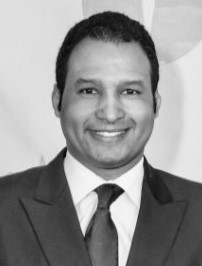
Un mundo post-feliz
A post-happy world
La televisión y el cine de hoy están llenos de distopías (utopías negativas) pero ninguna parece haber calado tanto en la conciencia colectiva como lo hizo la novela de George Orwell, “1984”, aparecida después de la Segunda Guerra Mundial, en 1949. En ella, influido por el creciente totalitarismo que veía a su alrededor, Orwell describe una sociedad de control absoluto sobre el individuo que castiga al disidente no sólo con la muerte, sino con la desaparición de toda huella de su existencia. Desde entonces, términos como “Gran hermano” y “policía del pensamiento” nos despiertan turbación y mal presagio.
Unos años después, en 1953, aparecería otra novela distópica que sumaría su fama a la primera: “Fahrenheit 451”, de Ray Bradbury. Se respira en ella el mismo totalitarismo impositivo de Orwell, aunque más enfocado a la banalización de la vida y, en especial, a la caza institucionalizada de libros ―que por ley debían ser quemados―, y de sus lectores, que solían terminar suicidándose.
Pero una novela singular, “Un Mundo Feliz”, escrita aun antes que las dos primeras (en 1932), completa la llamada trilogía distópica y le da una nueva dimensión a este género. Su autor, Aldous Huxley, que fue maestro de francés de Orwell en el Colegio Eton de Londres, logra proyectarse más allá del totalitarismo despiadado y anticipa lo que él llama “un Estado totalitario realmente eficaz”, un sistema que logra el sometimiento voluntario de sus ciudadanos y los acondiciona para amar su servidumbre.
Huxley reitera esta idea en una carta que le envía a Orwell en 1949 con motivo de la recepción de su libro: “En el curso de la próxima generación creo que los amos del mundo descubrirán que el condicionamiento infantil y la narcohipnosis son más eficaces como instrumentos de gobierno que los garrotes y los calabozos”.
Con el paso de los años pareciera que los gobiernos occidentales le han dado la razón a Huxley, más que a Orwell o a Bradbury.
Lo que surge ahora, ante nuestros ojos, es un nuevo orden global similar al que anticipó Un mundo feliz, es decir, un mundo donde la ingeniería social se ha hecho silenciosamente eficaz, donde el control tiende a ser excesivo pero seductor, donde la idea de familia se pulveriza y donde la sexualidad se desnaturaliza hasta dejarnos inexplicados. Pero, sobretodo, donde agradecemos con devoción, convencidos de que todo esto es por nuestro bien. Bienvenidos al mundo post-feliz.
Today’s television and cinema are full of dystopias (negative utopias) but none seem to have delved as far into the collective consciousness as George Orwell’s novel,”1984”, which, “appeared after World War II, in 1949. In it, influenced by the growing totalitarianism he saw around him, Orwell describes a society of absolute control over the individual who punishes the dissident not only with death, but with the disappearance of all traces of his existence. Since then, terms like”Big Brother”and “Thought Police” arouse turmoil and bad omen.
A few years later, in 1953, another dystopian novel would appear that would add its fame to the first: “Fahrenheit 451”, by Ray Bradbury. In it is the same tax totalitarianism as Orwell, although more focused on the trivialization of life and, in particular, the institutionalized hunting of books, which by law had to be burned, and of his readers, who used to end up committing suicide.
But a singular novel, “Brave New World”, written even before the first two (in 1932), completes the so-called dystopian trilogy and gives a new dimension to this genre. Its author, Aldous Huxley, who was Orwell’s French teacher at Eton College in London, manages to project himself beyond ruthless totalitarianism and anticipates what he calls “a truly effective totalitarian state” a system that achieves the voluntary subjugation of its citizens and conditions them to love their servitude.
Huxley reiterates this idea in a letter he sent to Orwell in 1949 on the occasion of the reception of his book: “In the course of the next generation I believe that the masters of the world will discover that child conditioning and narcohipnosis are more effective as instruments of government than clubs and dungeons.””.
Over the years it seems that Western governments have given Huxley reason, rather than Orwell or Bradbury.
What emerges now, before our eyes, is a new global order similar to the one anticipated by Brave New World, that is, a world where social engineering has become silently effective, where control tends to be excessive but seductive, where the idea of family is pulverized and where sexuality is distorted until we become unexplained. But, above all, where we thank with devotion, convinced that all this is for our sake… Welcome to the post-happy world.

























